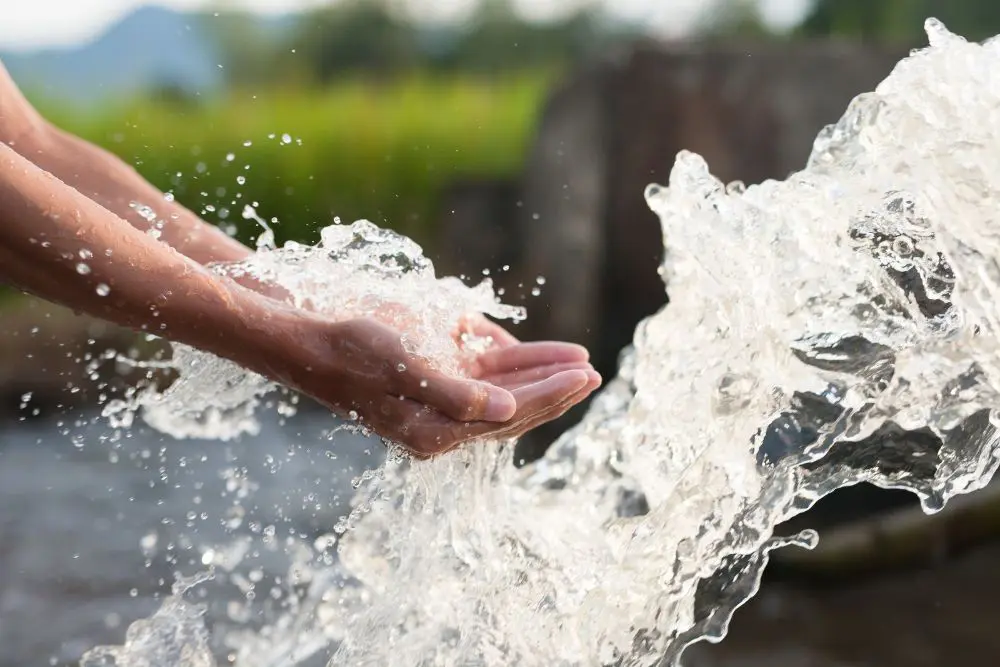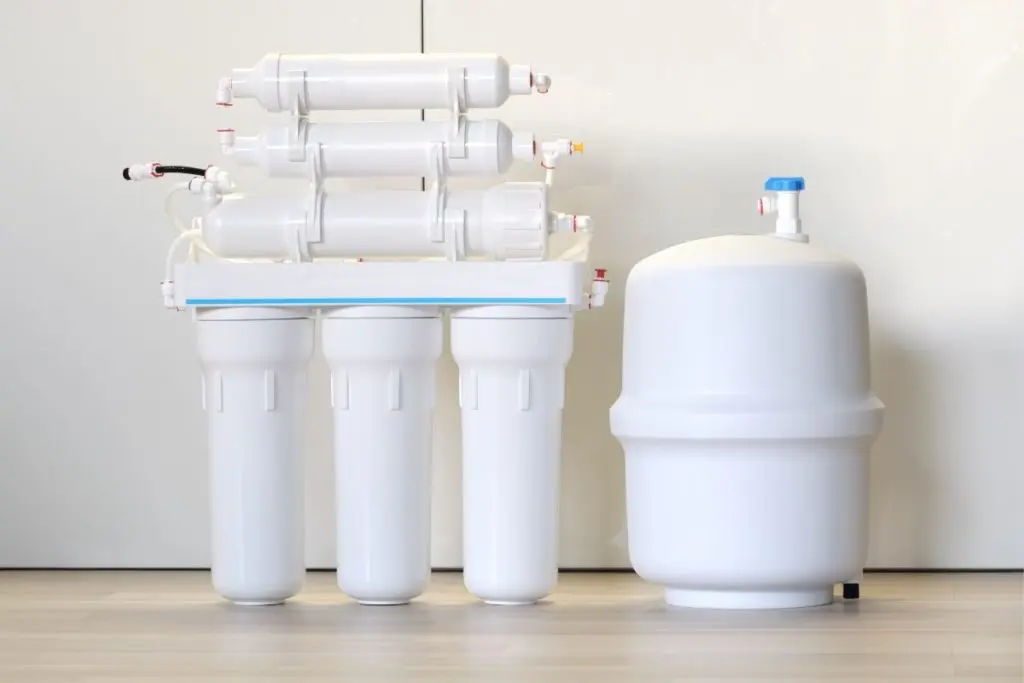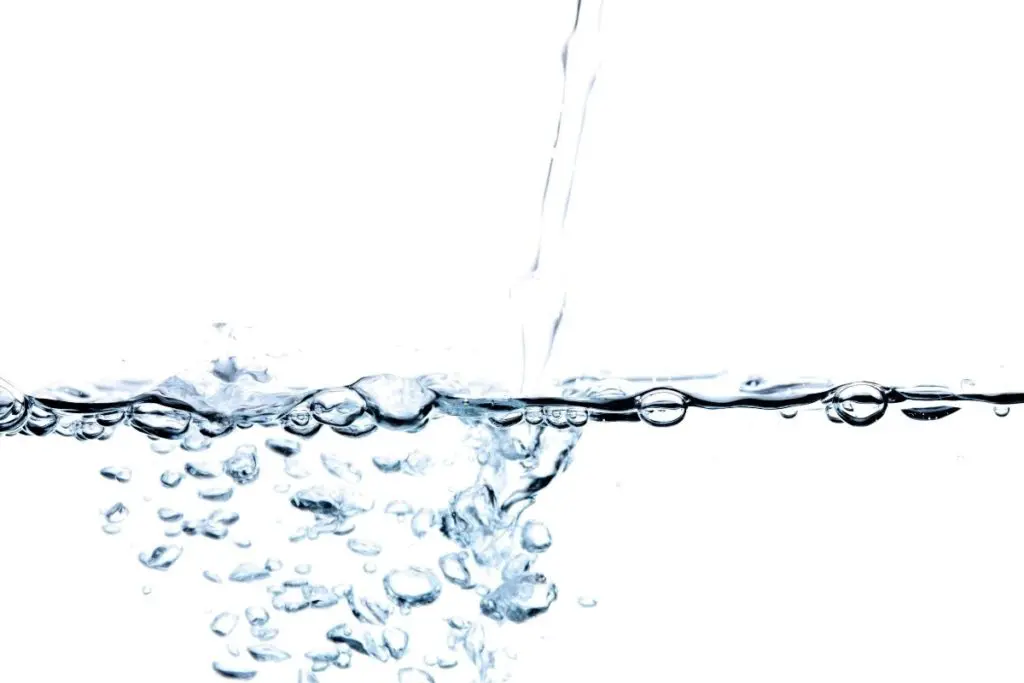Which is better: city water vs. well water?
Each option has its advantages and disadvantages. Ultimately, choosing between the two may come down to personal preference, or what you’re used to. Those who’ve always used city water may not want the burden of monitoring a well, while those accustomed to drinking their own well water might be suspicious of a shared municipal source.
Maybe you’ve never thought much about a comparison because you’re already using one or the other? Or perhaps you’re planning to buy a home, and the type of water system could be a major factor in your decision?
Whether you want to learn a little more about your own water supply, or find out which system is best for your next home, we’ve done the homework for you. In this article, we’ll compare the pros and cons of city water vs. well water across three categories: cost, convenience, and health.
| City Water | Well Water | |
|---|---|---|
| Cost | ★★★ | ★★★★ |
| Convenience | ★★★★★ | ★★ |
| Health | ★★ | ★★★★ |
City Water vs. Well Water: The Basics
Let’s take a quick peek at the basics of well water vs. city water.
City Water Basics
If you are one of the 280 million Americans with city water, you pay a monthly bill to a utility company to receive water from a large, community-shared municipal source. That water is processed, filtered, and then delivered through pipes to your property line.
City Water Pros
- No ongoing maintenance costs.
- The quality of your water is recorded publicly.
- If there’s a power outage, your water will still work.
- Unless you live in a remote area, city water is generally accessible everywhere.
- Water is continuously monitored and tested for safety, and meets or exceeds EPA guidelines. If there’s ever a problem, your city will let you know right away.
City Water Cons
- Municipal water is more likely to be contaminated on a large scale if there’s a natural disaster.
- Since your water is treated before it reaches you, it loses minerals that make water taste fresh.
- May contain chlorine or chloramines used to kill bacteria and diseases, or harmful contaminants from city piping
- Supplying your home with water can be more expensive than using your own well, and your water could be limited in times of bans or turned off due to non-payment.
Well Water Basics
Water from a well on your property reaches your home via a direct line. Approximately 13 million Americans own private wells.
Well Water Pros
- A well is less likely to be contaminated in a natural disaster.
- Well water is cheaper overall, and there’s no monthly bill.
- You don’t depend on the city or other entities to supply your water.
- Your water will likely be fresher, retain natural minerals, and taste better.
Well Water Cons
- Your water might be hard.
- Wells are reliant on electricity — if there’s a power outage, you won’t have water.
- Wells require maintenance and regular monitoring to ensure everything is safe and working correctly.
- Most wells are vulnerable to pollution, like fertilizer, sewage and septic leaks, and industrial or household chemicals.
- In certain conditions like drought, wells can go dry. This can damage equipment, or you might even need to drill a new well.
City Water vs. Well Water – Cost, Convenience, & Health
Now that we’ve talked about the basics of well water vs. city water, it’s time for an in-depth comparison. Let’s start with cost.
1
Cost
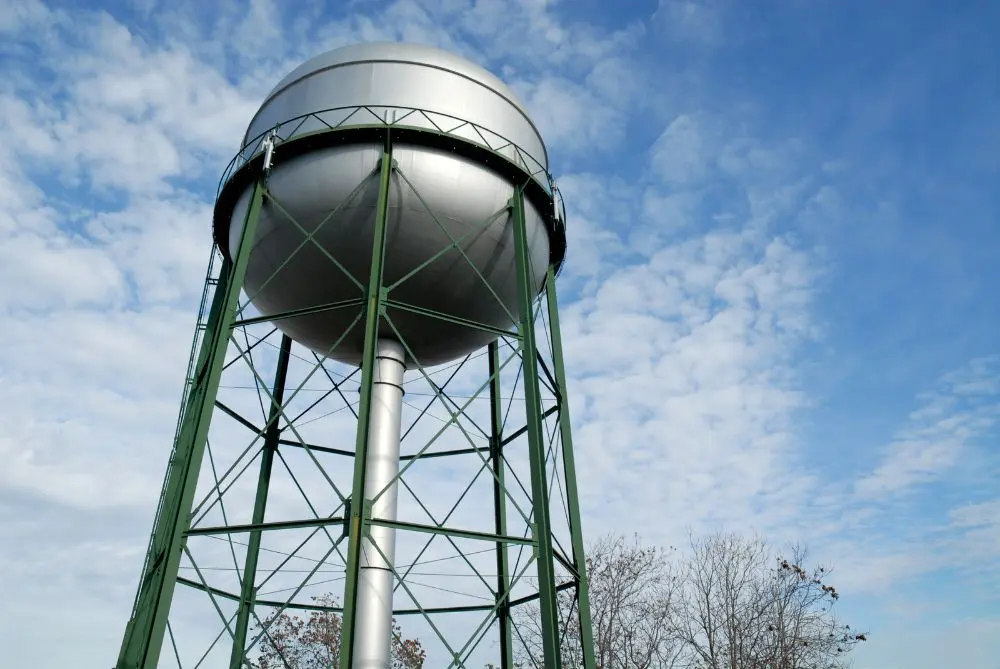
There are quite a few variables to consider when comparing the cost of city water vs. well water. In the end, your true costs will be impacted by things like:
- The rate of your household’s water usage
- The condition and depth of your well
- Whether you have water line insurance
- And other factors specific to your situation.
Water is a finite resource and requires increasing effort and expense to procure and treat. This is reflected in the increasing cost of city water, which homeowners should consider in the long term. While the city is responsible for the system that brings the water to you, if your own line breaks or leaks, you’re still liable for fixing it. That’s why most people purchase insurance for their water line — an additional city water expense to keep in mind.
A well is your private property, and so is your water. With well water, all repairs are on you. If a pump breaks, if you inherited an old or shallow well, or perhaps a low flow rate — each of these scenarios will require some kind of mitigation or expense. It’s also imperative to periodically test your well to make sure that your water is safe to drink. There are many test options, but the expense of testing falls on you. And don’t forget that you’ll also be paying for the electricity it takes to run your well.
A Note to Homeowners
Finally, there are a couple of cost-related factors that people don’t always consider. If you have city water, you may get a better rate from a mortgage lender since city water is better regulated and more predictable. However, if you live in an area where you’re subject to frequent water bans, or your city water isn’t high-quality, having a well might actually increase your property value.
Winner: Despite some potentially expensive upfront and maintenance costs, well water comes out ahead in cost-effectiveness.
2
Convenience
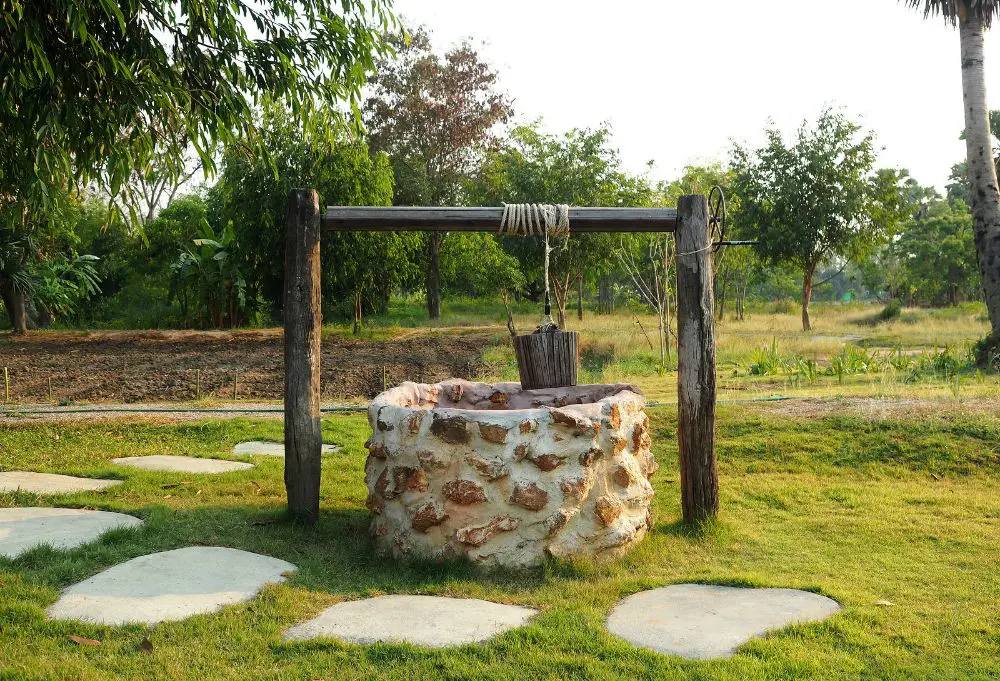
Whether you have city water or well water, each will require your attention as a responsible homeowner.
When you get water from a municipal source rather than a private source, your water will be regularly tested for you. City water requires less personal monitoring and virtually no maintenance. However, if the water line on your property breaks where it meets the city line, you’re on the hook for repairing it. And if you’re concerned about your water quality, you’ll want to test, and possibly consider a filtration system if you find excess chlorine or other worrying contaminants.
If your water comes from a well, you’ll have a lower price tag and no city oversight, but you’ll also have additional obligations. All repairs and maintenance are up to you, so you’ll need to know your well… well.
It’s essential to understand (at least generally) how it works, and the quantity and quality of water at your disposal. But most crucially, you’ll need to be vigilant about protecting your personal water source from pollution — including agricultural contaminants, heavy metals, industrial chemicals, and lawn and household chemicals.
Winner: Our clear winner for convenience is city water.
3
Health

The impact of water on health is a huge concern, and whether you have city water or well water, you need to know if it’s safe and clean.
Since city water is regularly monitored, the chances of bacteria, VOCs, lead, or other harmful chemicals making it through into your water supply is low. However, the overall quality of city water will vary depending on where you live, your city’s oversight, the geography and climate of your region, and the age and condition of water lines.
City water is treated with chlorine (or something similar) to eliminate bacteria and pathogens. While it’s vital to remove pathogens, sometimes too much chlorine or other contaminants remain in the water we use to bathe and drink. No thank you!
Overall, water quality is where well water shines because you have so much comparative control over your own private water source. Water from a well comes from deep in the ground, meaning it’s almost always fresher, purer, and filled with natural minerals.
However, there’s an important caveat here: well water is also vulnerable to bacteria and pollution. As previously noted, make sure to regularly test your well water to make sure it doesn’t contain pollutants, arsenic, or any of the bacteria or chemicals that are automatically removed from city water.
Skin & Hair
Water quality also has noticeable effects on the health of our skin and hair. Most of us have poured ourselves a glass of city water that smells a little like a swimming pool. It’s unpleasant to drink this water, but it can also have adverse effects on hair and skin, including itching, drying, rashes, or even hair loss. A water filter can be an easy solution for this problem for most city water users.
Those with well water often have a different dilemma: hard or highly mineralized water. In this case, people report their soap not “sudsing up,” a film or buildup on hair or skin, or problems getting clothing clean. These problems may require a water softener and/or filter to resolve.
Winner: In terms of drinking water, regularly monitored well water comes out ahead. When it comes to well water vs. city water for hair and skin, well water is also the winner.
Which is Best: City Water or Well Water?
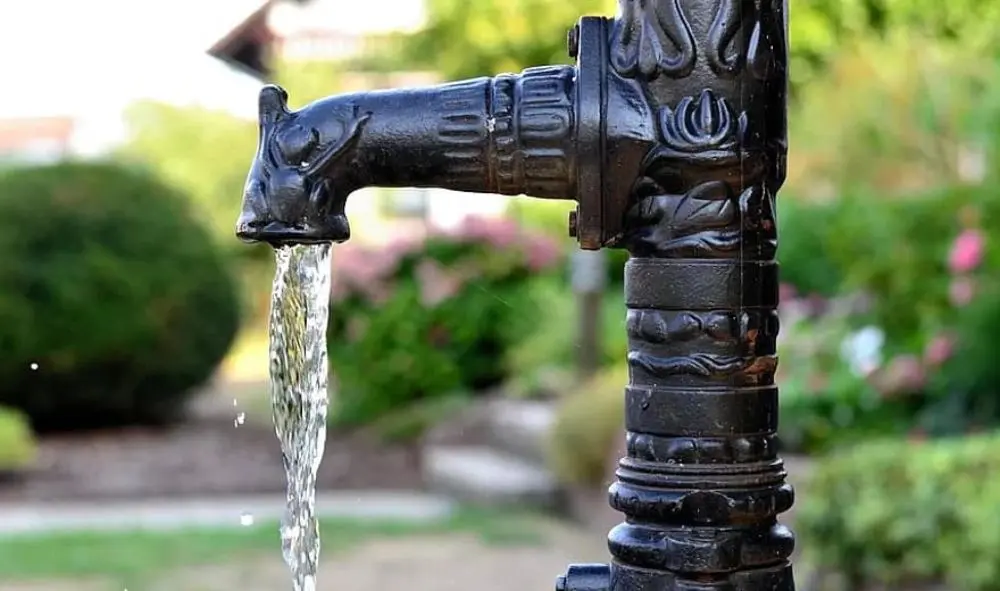
As we’ve learned, both have their pros and cons. For many of us, the real question is how to do the best with what we already have.
All things considered, we determined that well water squeaks out slightly ahead of city water — with one big asterisk. Well water systems are less expensive and better for your health, but only if you regularly monitor your water and your well.
But what if you have city water? Don’t fret — city water is not a bad setup by any means. You have the more convenient water system, no ongoing maintenance costs, and if you ever experience a power outage, you won’t have to worry about your water supply.
Further Reading
